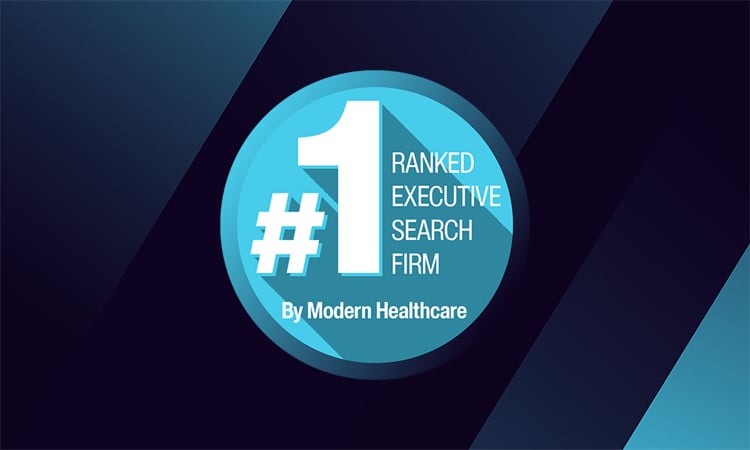
The Importance of Emotional Intelligence in Leadership
Leadership in clinical settings requires more than technical skills—it demands the ability to connect with and inspire people, manage complex emotions, and make sound decisions under pressure. This is where emotional intelligence (EI) becomes a defining factor.
For leadership candidates in healthcare, developing emotional intelligence can drive better team performance, improve patient outcomes, and fuel organizational success. Here’s why it matters and how you can cultivate it to stand out as a clinical leader.
Why Emotional Intelligence Matters for Leadership Candidates
Employers in the healthcare industry increasingly prioritize emotional intelligence when filling leadership roles. Here’s why EI is essential in clinical leadership and how it impacts key areas of responsibility.
1. Elevates Team Management and Collaboration
A clinical leader with high emotional intelligence fosters an environment where team members feel valued and supported. By understanding their own emotions—and those of their colleagues—they can effectively mediate conflicts, maintain morale, and cultivate teamwork.
For example, a leader with strong EI may notice when stress is building within a team and proactively address concerns before they escalate, ensuring staff remain motivated and engaged in their work.
2. Enhances Patient-Centered Care
Patient outcomes are deeply interconnected with the emotional climate of healthcare teams. Leaders who prioritize empathy and interpersonal skills can guide their teams to deliver care that is not only effective but also compassionate.
Imagine the subtle yet powerful impact of a clinical leader who recognizes when a provider is emotionally overwhelmed and steps in to ensure the patient's care remains empathetic yet efficient. This kind of leadership directly influences patient satisfaction and trust.
3. Drives Organizational Success
Healthcare organizations thrive when their departments operate harmoniously and efficiently. Leaders with emotional intelligence can better manage high-pressure situations, adapt to changes, and align their teams with the organization’s goals.
For instance, during crisis scenarios like a pandemic, emotionally intelligent leaders maintain composure and guide their teams with clear communication and empathy, helping the organization respond effectively while keeping staff morale intact.
Why Employers Care
The demands of healthcare leadership go beyond clinical excellence. Employers know that emotional intelligence equips leaders to balance people-centered management with strategic decision-making, making it a critical metric for assessing candidates.

Building Emotional Intelligence as a Leader
Whether you’re already in a leadership role or aspiring to step into one, emotional intelligence isn’t just an innate trait—it’s a skill that can be developed. Here’s how.
1. Cultivate Self-Awareness
Start by understanding your own emotional triggers and patterns.
- Practice Reflection: Dedicate time after work to reflect on how you reacted to certain situations during the day and why.
- Seek Feedback: Ask trusted colleagues or mentors for honest feedback about your interactions and decision-making style.
2. Hone Empathy
Empathy is at the core of emotionally intelligent leadership.
- Listen Actively: Giving your full attention to others and understanding their perspectives goes a long way.
- Observe Non-Verbal Cues: Learn to read body language and tone of voice to understand emotions beyond words.
3. Improve Communication Skills
Clear and empathetic communication builds trust and strengthens relationships.
- Use “I” statements to express your views without sounding confrontational.
- Ask open-ended questions to encourage dialogue and collaboration.
4. Regulate Your Reactions
Maintain your composure under stress or during conflict.
- Practice mindfulness techniques or breathing exercises to stay calm in high-pressure situations.
- Focus on responding thoughtfully rather than reacting impulsively.
5. Showcase Your EI During Interviews & Applications
Highlighting EI when applying for clinical leadership roles can set you apart. Here’s how to clearly demonstrate this competence:
- Share Stories: Use examples of how you resolved team conflicts, motivated staff, or led during tough situations.
- Use EI Language: Include terms like “empathy,” “collaboration,” and “adaptability” in your resume and cover letter.
Small but meaningful changes, such as being genuinely attentive during interviews, can also reflect your emotional intelligence. For example, maintaining eye contact and acknowledging the interviewer’s concerns demonstrate empathy and interpersonal awareness.
Emotional Intelligence as a Competitive Edge
In today’s competitive job market, strong emotional intelligence can be a game-changer, distinguishing you from others and opening doors to promotions or leadership opportunities.
Stand Out Among Peers
While technical expertise is fundamental to healthcare leadership, emotional intelligence equips you to lead people effectively. When two candidates bring equivalent clinical experience to the table, employers will likely favor the individual who demonstrates higher levels of EI.
Unlock Growth Opportunities
Many healthcare organizations actively nurture leaders who exhibit strong interpersonal and emotional skills. Cultivating EI can open doors to mentorship, stretch assignments, and other growth-driven opportunities that accelerate your career trajectory.
Future-Proof Your Career
Soft skills like emotional intelligence will continue to grow in value as healthcare becomes more patient-centered and team dynamics become increasingly complex. Developing EI is an investment in both your current role and long-term aspirations.
Take the Next Step Toward Exceptional Leadership
Becoming an emotionally intelligent leader is no longer optional—it’s essential for success in today’s clinical settings. By mastering self-awareness, empathy, communication, and adaptability, you can position yourself as a standout candidate in a competitive market. Now’s the time to lead with emotional intelligence—and unlock your full potential.



